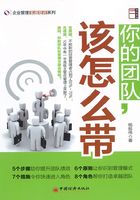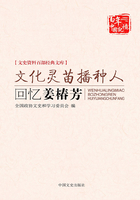If, therefore, for the liberty of dying men, and for the desire of human praise which is sought after by mortals, sons could be put to death by a father, what great thing is it, if, for the true liberty which has made us free from the dominion of sin, and death, and the devil,-not through the desire of human praise, but through the earnest desire of fleeing men, not from King Tarquin, but from demons and the prince of the demons,--we should, I do not say put to death our sons, but reckon among our sons Christ's poor ones? If, also, another Roman chief, surnamed Torquatus, slew his son, not because he fought against his country, but because, being challenged by an enemy, he through youthful impetuosity fought, though for his country, yet contrary to orders which he his father had given as general; and this he did, notwithstanding that his son was victorious, lest there should be more evil in the example of authority despised, than good in the glory of slaying an enemy;--if, I say, Torquatus acted thus, wherefore should they boast themselves, who, for the laws of a celestial country, despise all earthly good things, which are loved far less than sons? If Furius Camillus, who was condemned by those who envied him, notwithstanding that he had thrown off from the necks of his countrymen the yoke of their most bitter enemies, the Veientes, again delivered his ungrateful country from the Gauls, because he had no other in which he could have better opportunities for living a life of glory;--if Camillus did thus, why should he be extolled as having done some great thing, who, having, it may be, suffered in the church at the hands of carnal enemies most grievous and dishonoring injury, has not betaken himself to heretical enemies, or himself raised some heresy against her, but has rather defended her, as far as he was able, from the most pernicious perversity of heretics, since there is not another church, I say not in which one can live a life of glory, but in which eternal life can be obtained? If Mucius, in order that peace might be made with King Porsenna, who was pressing the Romans with a most grievous war, when he did not succeed in slaying Porsenna, but slew another by mistake for him, reached forth his right hand and laid it on a red-hot altar, saying that many such as he saw him to be had conspired for his destruction, so that Porsenna, terrified at his daring, and at the thought of a conspiracy of such as he, without any delay recalled all his warlike purposes, and made peace;--if, I say, Mucius did this, who shall speak of his meritorious claims to the kingdom of heaven, if for it he may have given to the flames not one hand, but even his whole body, and that not by his own spontaneous act, but because he was persecuted by another? If Curtius, spurring on his steed, threw himself all armed into a precipitous gulf, obeying the oracles of their gods, which had commanded that the Romans should throw into that gulf the best thing which they possessed, and they could only understand thereby that, since they excelled in men and arms, the gods had commanded that an armed man should be cast headlong into that destruction;--if he did this, shall we say that that man has done a great thing for the eternal city who may have died by a like death, not, however, precipitating himself spontaneously into a gulf, but having suffered this death at the hands of some enemy of his faith, more especially when he has received from his Lord, who is also King of his country, a more certain oracle, "Fear not them who kill the body, but cannot kill the soul?" (2) If the Decii dedicated themselves to death, consecrating themselves in a form of words, as it were, that falling, and pacifying by their blood the wrath of the gods, they might be the means of delivering the Roman army;--if they did this, let not the holy martyrs carry themselves proudly, as though they had done some meritorious thing for a share in that country where are eternal life and felicity, if even to the shedding of their blood, loving not only the brethren for whom it was shed, but, according as had been commanded them, even their enemies by whom it was being shed, they have vied with one another in faith of love and love of faith.If Marcus Pulvillus, when engaged in dedicating a temple to Jupiter, Juno, and Minerva, received with such indifference the false intelligence which was brought to him of the death of his son, with the intention of so agitating him that he should go away, and thus the glory of dedicating the temple should fall to his colleague; --if he received that intelligence with such indifference that he even ordered that his son should be cast out unburied, the love of glory having overcome in his heart the grief of bereavement, how shall any one affirm that he had done a great thing for the preaching of the gospel, by which the citizens of the heavenly city are delivered from divers errors and gathered together from divers wanderings, to whom his Lord has said, when anxious about the burial of his father, "Follow me, and let the dead bury their dead?"(1) Regulus, in order not to break his oath, even with his most cruel enemies, returned to them from Rome itself, because (as he is said to have replied to the Romans when they wished to retain him) he could not have the dignity of an honorable citizen at Rome after having been a slave to the Africans, and the Carthaginians put him to death with the utmost tortures, because he had spoken against them in the senate.If Regulus acted thus, what tortures are not to be despised for the sake of good faith toward that country to whose beatitude faith itself leads? Or what will a man have rendered to the Lord for all He has bestowed upon him, if, for the faithfulness he owes to Him, he shall have suffered such things as Regulus suffered at the hands of his most ruthless enemies for the good faith which he owed to them? And how shall a Christian dare vaunt himself of his voluntary poverty, which he has chosen in order that during the pilgrimage of this life he may walk the more disencumbered on the way which leads to the country where the true riches are, even God Himself;--how, I say, shall he vaunt himself for this, when he hears or reads that Lucius Valerius, who died when he was holding the office of consul, was so poor that his funeral expenses were paid with money collected by the people?--or when he hears that Quintius Cincinnatus, who, possessing only four acres of land, and cultivating them with his own hands, was taken from the plough to be made dictator,--an office more honorable even than that of consul,--and that, after having won great glory by conquering the enemy, he preferred notwithstanding to continue in his poverty? Or how shall he boast of having done a great thing, who has not been prevailed upon by the offer of any reward of this world to renounce his connection with that heavenly and eternal country, when he hears that Fabricius could not be prevailed on to forsake the Roman city by the great gifts offered to him by Pyrrhus king of the Epirots, who promised him the fourth part of his kingdom, but preferred to abide there in his poverty as a private individual? For if, when their republic, --that is, the interest of the people, the interest of the country, the common interest, --was most prosperous and wealthy, they themselves were so poor in their own houses, that one of them, who had already been twice a consul, was expelled from that senate of poor men by the censor, because he was discovered to possess ten pounds weight of silverplate,--since, I say, those very men by whose triumphs the public treasury was enriched were so poor, ought not all Christians, who make common property of their riches with a far nobler purpose, even that (according to what is written in the Acts of the Apostles) they may distribute to each one according to his need, and that no one may say that anything is his own, but that all things may be their common possession,(2)--ought they not to understand that they should not vaunt themselves, because they do that to obtain the society of angels, when those men did well-nigh the same thing to preserve the glory of the Romans?
同类推荐
热门推荐
她比蜜糖还要甜
一中转来一位学神,学习身材颜值样样在线,钦点混子选手夏知歌作为同桌,作为颜狗的夏知歌表示:追他!追他!追他!然而夏·怂·知歌只敢在梦里和学神表白,晚上一遍遍说我爱你,白天上课只敢借借作业。后来她发现这个同桌有些古怪。同学说沈栢川高贵冷艳,他却在她痛经时给她接热水。老师说沈栢川学习好又乖巧听话,他却一口回绝老师换同桌的要求。直到某一次她路过老师办公室,听着里面老师对他训话,要求他离她远一点,而那个风光霁月的少年淡淡说:“是,我喜欢夏知歌。”*沈栢川上辈子死前只记得抱住他一起被炸死的妻子,重活一世,他下定决心挽救夏知歌。从此碧落黄泉,生死相随。*又名我和学神的二次恋爱,学神太爱我了怎么办。文化灵苗播种人:回忆姜椿芳
姜椿芳先生是我国当代文化界的前辈,本书收录了姜椿芳先的朋友、学生、家人数十人的回忆文章,从这些文章中,我们能看到姜椿芳先生作为中国知识分子的精神、责任和良知。他历经磨难而又矢志不渝的爱国情怀,学养宏富而又虚怀若谷的治学精神,诲人不倦而又谦谦君子的儒家风范,至今受人敬仰,为人缅怀。正如季羡林先生所说:“一个人只能有一次生命,既然如此,一个人就应该在这短暂的只有一次的生命中努力做一些对别人有益也无愧于自己的良心的事情,用一句文绉绉的话来说,就是实现自己生命的价值。我认为,姜椿芳同志是真正做到了这一点的,他真正实现了自己生命的价值。”















